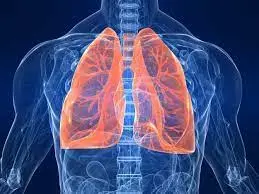- Home
- Medical news & Guidelines
- Anesthesiology
- Cardiology and CTVS
- Critical Care
- Dentistry
- Dermatology
- Diabetes and Endocrinology
- ENT
- Gastroenterology
- Medicine
- Nephrology
- Neurology
- Obstretics-Gynaecology
- Oncology
- Ophthalmology
- Orthopaedics
- Pediatrics-Neonatology
- Psychiatry
- Pulmonology
- Radiology
- Surgery
- Urology
- Laboratory Medicine
- Diet
- Nursing
- Paramedical
- Physiotherapy
- Health news
- Fact Check
- Bone Health Fact Check
- Brain Health Fact Check
- Cancer Related Fact Check
- Child Care Fact Check
- Dental and oral health fact check
- Diabetes and metabolic health fact check
- Diet and Nutrition Fact Check
- Eye and ENT Care Fact Check
- Fitness fact check
- Gut health fact check
- Heart health fact check
- Kidney health fact check
- Medical education fact check
- Men's health fact check
- Respiratory fact check
- Skin and hair care fact check
- Vaccine and Immunization fact check
- Women's health fact check
- AYUSH
- State News
- Andaman and Nicobar Islands
- Andhra Pradesh
- Arunachal Pradesh
- Assam
- Bihar
- Chandigarh
- Chattisgarh
- Dadra and Nagar Haveli
- Daman and Diu
- Delhi
- Goa
- Gujarat
- Haryana
- Himachal Pradesh
- Jammu & Kashmir
- Jharkhand
- Karnataka
- Kerala
- Ladakh
- Lakshadweep
- Madhya Pradesh
- Maharashtra
- Manipur
- Meghalaya
- Mizoram
- Nagaland
- Odisha
- Puducherry
- Punjab
- Rajasthan
- Sikkim
- Tamil Nadu
- Telangana
- Tripura
- Uttar Pradesh
- Uttrakhand
- West Bengal
- Medical Education
- Industry
Dexpramipexole safe and efficacious option for Patients With Eosinophilic Asthma

Dexpramipexole safe and efficacious option for Patients With Eosinophilic Asthma suggests a new study published in the Journal of Allergy and Clinical Immunology.
There is a need for new and effective oral asthma therapies. Dexpramipexole, an oral eosinophil-lowering drug, has not previously been studied in asthma.
The researchers ought to evaluate the safety and efficacy of dexpramipexole in lowering blood and airway eosinophilia in subjects with eosinophilic asthma.
They performed a randomized, double-blind, placebo-controlled proof-of-concept trial in adults with inadequately controlled moderate to severe asthma and blood absolute eosinophil count (AEC) greater than or equal to 300/μL. Subjects were randomly assigned (1:1:1:1) to dexpramipexole 37.5, 75, or 150 mg BID (twice-daily) or placebo. The primary end point was the relative change in AEC from baseline to week 12. Prebronchodilator FEV1 week-12 change from baseline was a key secondary end point. Nasal eosinophil peroxidase was an exploratory end point.
Results
A total of 103 subjects were randomly assigned to dexpramipexole 37.5 mg BID (N = 22), 75 mg BID (N = 26), 150 mg BID (N = 28), or placebo (N = 27). Dexpramipexole significantly reduced placebo-corrected AEC week-12 ratio to baseline, in both the 150-mg BID (ratio, 0.23; 95% CI, 0.12-0.43; P < .0001) and the 75-mg BID (ratio, 0.34; 95% CI, 0.18-0.65; P = .0014) dose groups, corresponding to 77% and 66% reductions, respectively. Dexpramipexole reduced the exploratory end point of nasal eosinophil peroxidase week-12 ratio to baseline in the 150-mg BID (median, 0.11; P = .020) and the 75-mg BID (median, 0.17; P = .021) groups. Placebo-corrected FEV1 increases were observed starting at week 4 (nonsignificant). Dexpramipexole displayed a favorable safety profile.
Conclusions
Dexpramipexole demonstrated effective eosinophil lowering and was well tolerated. Additional larger clinical trials are needed to understand the clinical efficacy of dexpramipexole in asthma.
Reference:
Salman Siddiqui, Sally E. Wenzel, Michael E. Bozik, William W. Busse, Reynold A. Panettieri, Calman Prussin. Safety and Efficacy of Dexpramipexole in Eosinophilic Asthma (EXHALE): A randomized controlled trial. Open AccessPublished:June 02, 2023DOI:https://doi.org/10.1016/j.jaci.2023.05.014
Keywords:
Dexpramipexole, safe, efficacious, option, Patients, Eosinophilic, Asthma, Salman Siddiqui, Sally E. Wenzel, Michael E. Bozik, William W. Busse, Reynold A. Panettieri, Calman Prussin, Journal of Allergy and Clinical Immunology
Dr. Shravani Dali has completed her BDS from Pravara institute of medical sciences, loni. Following which she extensively worked in the healthcare sector for 2+ years. She has been actively involved in writing blogs in field of health and wellness. Currently she is pursuing her Masters of public health-health administration from Tata institute of social sciences. She can be contacted at editorial@medicaldialogues.in.
Dr Kamal Kant Kohli-MBBS, DTCD- a chest specialist with more than 30 years of practice and a flair for writing clinical articles, Dr Kamal Kant Kohli joined Medical Dialogues as a Chief Editor of Medical News. Besides writing articles, as an editor, he proofreads and verifies all the medical content published on Medical Dialogues including those coming from journals, studies,medical conferences,guidelines etc. Email: drkohli@medicaldialogues.in. Contact no. 011-43720751


